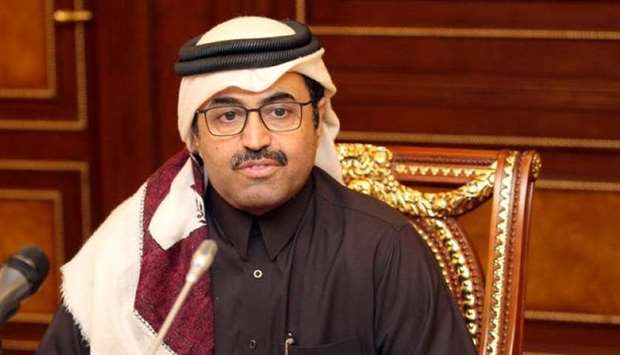HE Dr Mohamed bin Saleh al-Sada told Reuters Doha had seen unprecedented interest from majors as Qatar seeks to expand its gas capacity to 100mn tonnes a year from the current 77mn to cement its position as the world's largest exporter.
"Both US and EU majors have shown great interest. We did expect this, but they surprised us on the upside by the degree of keenness," said al-Sada, when asked whether firms had expressed concerns about potential pressure from Saudi Arabia and the United Arab Emirates (UAE) not to cooperate with Qatar.
Saudi Arabia and the UAE cut ties with Doha in June, saying Qatar backed terrorism and was cosying up to Iran. Qatar rejected the accusation.
Reuters reported last year that Qatar's traditional partners ExxonMobil, Royal Dutch/Shell and Total , which helped turn the country into a gas superpower, had all shown interest in new projects. The companies are also heavily present in the UAE and Saudi Arabia.
"We have newcomers too," said al-Sada.
Saudi Arabia and the UAE have presented demands which, Qatar says, would amount to surrendering its sovereignty if implemented. The dialogue between the former allies has been effectively frozen over the past six months despite mediation attempts by the United States.
"We are happy to sit down with everyone, but with one message in mind - preserving our sovereignty is a paramount condition," said al-Sada.
The crisis has prompted Qatar to abandon plans to supply more gas to neighbouring countries. It is now looking for new markets for its liquefied natural gas (LNG).
"LNG is not a regional commodity. We can reach all corners in the world unlike via pipelines which are restricted from point A to B and are crossing geopolitically challenging areas," said al-Sada.
Qatar has insisted the crisis has opened new opportunities by spurring domestic industries such as construction, while competition among importers into the country is also rising. GDP is expected to rise 3.7-4% this year, said al-Sada.
"We turned challenges into an opportunity. Internally, we rationalised for better efficiency," he said, citing the merger of Qatar's two top gas companies Qatargas and RasGas as an example.
The merger will allow Qatar to further cut costs and become more competitive, said al-Sada. On the resultant layoffs, he said those contracts were close to expiry anyway, adding there were no layoffs among Qatari nationals.
"It was also important that the foreign partners shared our vision of the merger," he said.
Externally, Qatar is diversifying investments which range from stakes in companies such as Volkswagen and Glencore to ownership of luxury hotels and UK shops.
"The diversification of the portfolio will continue. We are open minded about investing in tight or shale oil ... US offers very good opportunities and we studied a number of those projects," he said.
He added Qatar was expanding investment into LNG exports out of the United States where the country has a venture with Exxon for the Sabine Pass terminal, which was initially designed to import gas into the United States but is now being converted into an export terminal as US gas output soars.
Despite rising exports from Qatar and rival producers such as the United States and Russia, a major global gas glut was unlikely to arise as demand for gas is growing faster than for any other forms of energy, al-Sada said.
"Maybe for the next 4-5 years we may have a surplus, but it will be less than previously perceived. But beyond 2024-2025 the market will be tight again. That is why Qatar chose to start expanding now."

,We are happy to sit down with everyone, but with one message in mind - preserving our sovereignty is a paramount condition,, said al-Sada.
US and European oil majors are piling in with offers to help Qatar develop new gas projects, the country's energy minister said, despite a protracted crisis in the Gulf region and pressure on firms to choose between Qatar and its neighbours.


